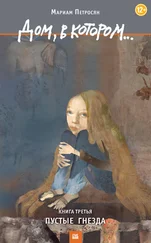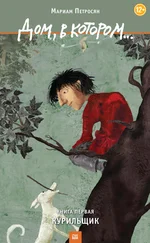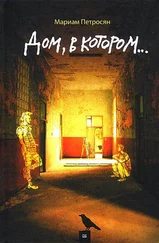In the evenings they would sit on the carpet, the boy and the blue-eyed man whose name was Elk, sit and listen to music and talk. They had a creaking record player and records in tattered sleeves, and the boy would study the sleeves like paintings, trying to match the images on them to the music they contained. He was never able to. The summer nights walked in through the open window. They didn't turn on the lights so as not to attract mosquitoes. Once the boy saw what looked like a rag cross the deep blue velvet of the sky. It turned out to be a bat, a mouse skeleton in a torn cape. After that he would always position himself so he could see the sky from where he was sitting.
“Why do you call yourself Elk?” the boy asked.
He was thinking of those elk who roamed the forests, with their horns lacy like oak leaves. And of deer, who were relatives to the elk but had very different horns. He'd thought about that for a long time before mustering enough courage to ask.
“It's my nick,” Elk explained. “A nickname. Everyone who lives in the House has a nick, that's just the way it is here.”
“I live here too now, do I have one?”
“Not yet. But you will. When they all come back and you move to one of the dorms, you’ll get a nick.”
“What will it be?”
“I don't know. A good one, I hope. If you're lucky.”
The boy thought about possible names for himself but couldn't come up with anything. It all rested with them, those who were coming back. He wanted them to come back sooner.
“Why aren't they inviting me?” the boy asked. “Do they think I can't play with them? Or is it that they don't like me?”
“No,” Elk said. “You're just new in the House. They need some time to get used to you being here. This always happens at first. Have patience.”
“How much time?” the boy asked.
“Looks like you're really bored,” Elk said.
The next day, when Elk came, he was not alone. With him was another boy, who never went out into the yard and had never before shown himself.
“I brought you a friend,” Elk said. “He is going to live here with you, so you are not alone anymore. This is Blind. You two can do whatever you want—play, go crazy, break furniture. Just try not to fight and not to complain to me about each other. The room is all yours.”
Blind never played with him, because he didn't know how. He did attend to the boy dutifully: woke him up in the morning, washed his face, combed his hair. Listened to his stories, almost never saying anything back in reply, and shadowed his every step. Not because he wanted to. He assumed that this was what Elk wanted of him. Elk's wishes were his command. Elk had only to ask, and he would have jumped off the balcony. Or the roof. Or pushed someone else off it. The armless boy was afraid of that. Elk was much more afraid. Blind was already grown up inside. A little grown-up hermit. He had long hair and a frog-like mouth always covered in red sores. He was pale as a ghost and extremely thin. He was nine. Elk was his god.
Blind's memory was full of noises, smells, and murmurs. It did not go very deep—Blind remembered nothing of his early childhood. Almost nothing. About the only thing he could fish out was the interminable sitting on the potty. There were many little boys there, and they all sat in a row on identical tin potties. The memory was a sad one and it smelled bad. He calculated later that they were forced to sit like that for no less than half an hour each time. Many of them managed to do their thing early, but they still had to remain sitting, waiting for the others. This was discipline, and they'd been receiving discipline since birth. He also remembered the yard. They walked there, each holding on to the clothes of the one in front but still tripping and falling. At the beginning and the end of this chain walked the grown-ups. If anyone stopped or deviated from the prescribed direction, a loud voice from above would restore order. His world consisted then of two types of voices. One type brought guidance from above. Another was closer and more intelligible; such voices belonged to those like himself. He did not like them either. Sometimes the loud voices disappeared. If they went missing for a long time, he and others like him would start running, jumping, falling, and bloodying their noses, and it would immediately become clear that the yard was much smaller than it seemed when they walked around it in lockstep. It became cramped, and its surface hardened and scraped their knees.
From a later time he remembered the fights. Frequent fights, for no particular reason. It could start with someone bumping someone else, and that they were doing all the time. They shoved him, he shoved back—not on purpose, it just happened—and then it was that after the first accidental shove came another, enough to knock him off his feet, or a blow that made a part of him hurt. He had decided to strike first, without waiting for the blows. Sometimes the voices from above would get angry at this, and he would be taken to another room. A punishment place. There were no tables, no chairs, no beds, just the walls. Also the ceiling, but he did not know about it then. He was not afraid of the room. Others would cry when they were locked in it. He never cried. He liked being alone. He didn't care if there were people around him or not. When he was tired he would lie down on the floor and sleep. When he was hungry he would take stashed bread crusts out of his pockets. If they kept him in this room for a long time, he would peel plaster from the walls and eat it. He liked eating it even more than bread, but the grown-ups got angry when they caught him at it, so he only allowed himself to do it when they left him alone.
He soon realized that they didn't like him. He was often singled out, punished more frequently than the other children and for things he hadn't done. He did not understand the reasons for it, but he was not surprised or angered. Nothing ever surprised him. Nothing good could ever come from the grown-ups. He established that the grown-ups were unfair, and he accepted it. When he learned to distinguish between men and women, he recognized that women behaved worse toward him than men, but left that fact without an explanation as well, just acknowledging it in the same way he acknowledged everything that surrounded him.
Then he realized he was short and weak. That was when the voices of other children started coming to him from a little higher up and their blows started hurting much worse. At about the same time, he found out that some other children could see. He did not understand what that meant. He knew that the grown-ups had some enormous advantage that allowed them to move freely beyond the boundaries of his world, but he always assumed that it had to do with their height and strength. What this “seeing” was, he could not grasp. And even when he did learn how it worked he still could not imagine it. For him “to see” meant only “to have better aim.” The blows from the sighted were more painful.
Once he figured out that the stronger and the sighted had this advantage, he endeavored to become better at it himself. This was important for him. He did his best, and they started fearing him. Blind quickly understood the reason for this fear. The children were afraid not of his strength, which he did not have anyway, but of the way he carried himself. Of his calmness and unconcerned manner. Of how he was not afraid of anything. When someone hit him, he never cried, he would just get up and leave. When he hit someone, that someone usually cried, scared by his serenity. He discovered where to hit so that it hurt. This scared them too.
As he grew older, the world seemed to resent him more and more. The resentment manifested itself differently with children than with grown-ups, but eventually it grew into the wall of loneliness that surrounded him on all sides. Until Elk. The man who talked to him alone, not to him as one of many. Blind could not know that Elk had been summoned because of him. He thought that Elk picked him out from the others and loved him more than them. Elk strolled into his life as if it were his own room and upended it, rearranged and filled with himself. With his words, his laughter, his soft hands and warm voice. He brought with him many things that were unknown and unknowable to Blind, because no one cared what Blind knew and didn't know. Blind's world was limited to a couple of rooms and the yard. When other children, accompanied by the grown-ups, happily left its confines, he always stayed behind. Into the meager four corners of this world stormed Elk, filled it to the brim and made it limitless and boundless. And Blind gave his heart and soul, his whole self, to Elk forevermore.
Читать дальше

![Мариам Петросян - Дом, в котором… [Издание 2-е, дополненное, иллюстрированное, 2016]](/books/62844/mariam-petrosyan-dom-v-kotorom-izdanie-2-thumb.webp)









